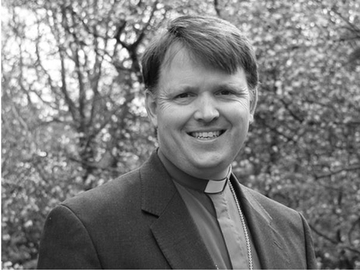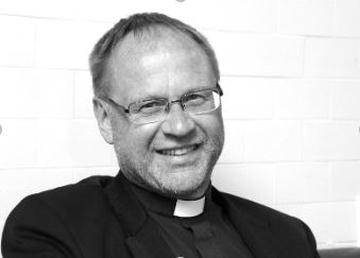
Eleven years ago, during a group discussion at theological college, we somehow ended up talking about famous fish of the Bible. Given the lack of contenders in this category (the fish in Jonah notwithstanding), it mystifies me now how we got into this topic, what we were meant to be discussing, or how we kept going for so long. I certainly never imagined that more than a decade later, I would be writing a magazine piece about animals of the Bible.
Read more

Ordinary Time between Pentecost and Advent can drag on a little, so I think I’m going to launch a campaign for the end of September to the beginning of December to be officially designated Angeltide!
On September 29th we celebrate the feast day of St Michael and All Angels and at the end of October we have All Hallows. No sooner have the pumpkins and witches’ costumes left our shop shelves than their place is taken by Christmas cards and decorations in which angels feature prominently.
Read more

I am not what anyone would call a tranquil person. Sitting still is anathema to me, while my mind needs to be active constantly; my idea of light holiday reading is an 800-page history of the place I am visiting. Just occasionally, however, I can find myself at peace and – ironically for someone who thinks civilisation stops where the streetlights run out – it is most often when confronted with rural sunsets.
Read more

“I hope you’ll feel better soon;” “I hope you have a good holiday;” “I hope I get a question on … in the exam;” “I hope to be able to come to the party.”
Hope is a small word which we all use, probably on a daily basis, but what exactly do we mean by it?
The Concise Oxford Dictionary defines hope as: “expectation and desire combined.” In reality, it’s one of those words which will mean different things to different people depending on their circumstances.
Read more

Bishop Graham reflects on his visit to Morogoro.
“Bwana asifiwe” were the Swahili words I kept hearing during a recent visit to Tanzania. It’s used as a greeting and means “Praise the Lord”.
As a group from the Diocese of Worcester visiting our sisters and brothers in Christ in the Diocese of Morogoro, we were caught up in many times of praise. Together we sang and prayed, talked and danced. People, young and old, seemed to almost burst with joy; the women clicking their tongues from side to side in their mouths to make the unique ululating sound.
Read more

The Mince Pies and Christmas cakes were hardly off the supermarket shelves before their place was taken by Hot Cross Buns and chocolate eggs. Enter the word “Easter” into Google Images and you have to scroll through 39 pictures of eggs, rabbits and chicks before you reach the first one of a cross. One is all you get before a return to the other images and you have to scroll through another 15 before you find a picture of Christ and even then He shares the space with a rabbit!
Read more

At the 1993 Conservative Party Conference in Blackpool, John Major launched what became one of the most widely-derided and satirised campaigns of modern times: ‘Back to Basics’. To be fair, the Prime Minister’s words were wilfully misinterpreted by the media; as he himself would observe years later, it was an example of how soundbites taken out of context can be misleading.
Read more

Mental health issues have, over recent months, become a hot topic. There is a new openness and a reduction in the perceived stigma attached to acknowledging mental health problems.
February 4th – 10th 2019 has been designated children’s mental health week and so this is a good time for us to consider this matter and to ask, in particular: What is the Christian response to mental health issues? The immediate and short answer is of course, exactly the same as the Christian response to any form of human suffering: To meet it with compassion, with prayer and, where possible, with the appropriate practical action.
Read more

From Robert Jones, Archdeacon of Worcester
We live in tumultuous political times, so much so that many people are literally switching off from TV and radio news. It does indeed seem that megaphone diplomacy, which, of course, is no diplomacy at all, is playing a bigger part in our public discourse. We must not have a false sense that history automatically gets better as we learn to live better, when it is clear that human sinfulness can mess things up just as effectively today as it ever did.
Read more

“Luise has already bagged Good King Wenceslas” was the message I received from Graham when he told me that St Stephen is the theme for this month’s magazine. Out of the window, then, went my first idea!
So what does that leave me? St Stephen: the first Christian martyr, whose story is told in chapters six and seven of Acts, where he is described as “A man full of faith and the Holy Spirit.”
Read more









